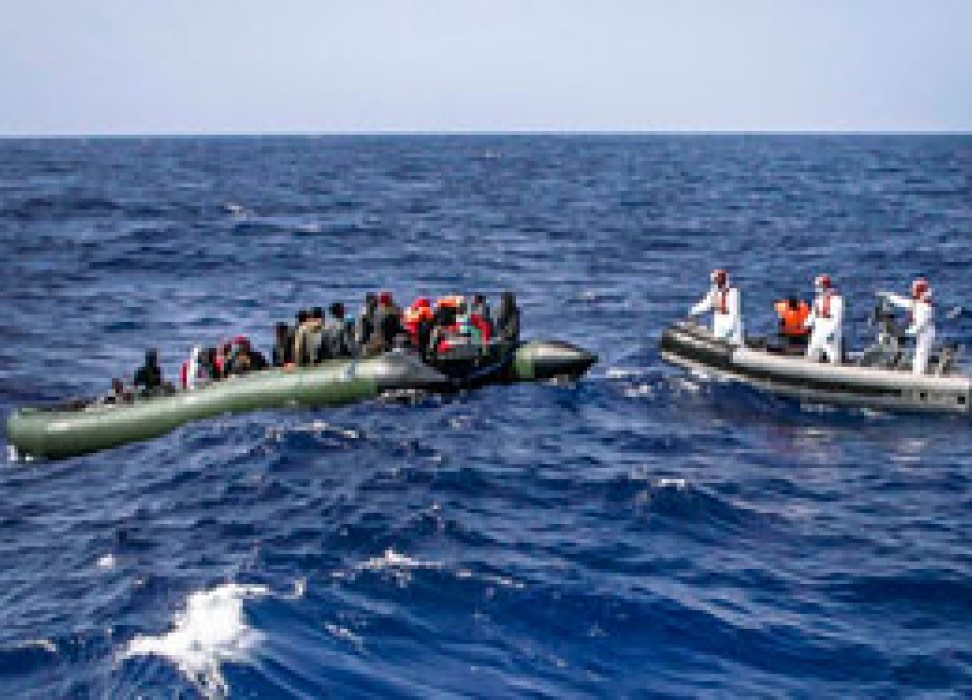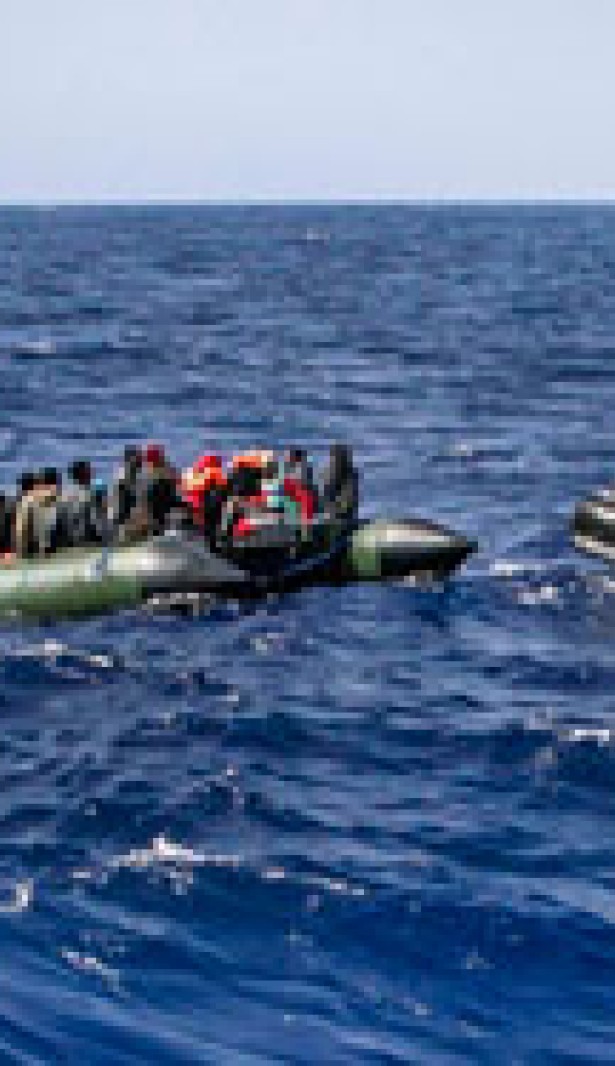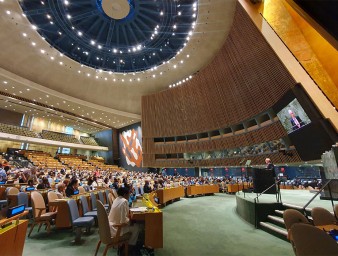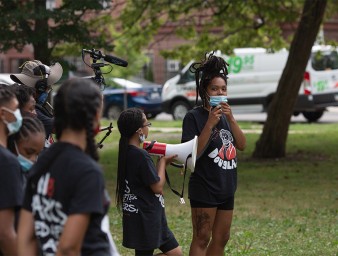Demystifying migration: giving a voice to millions
23 October 2013

“It is not acceptable that migrants should be made to pay with their lives for seeking to escape poverty or discrimination,” said UN Human Rights Chief Navi Pillay during a High-Level Dialogue on International Migration and Development, which was held in October during the United Nations General Assembly’s 68th Session in New York, the same morning that the Lampedusa boat tragedy claimed the lives of hundreds of migrants. The overcrowded vessel was carrying 500 migrants, mostly Eritreans and Somalis, when it caught fire and sank into the Mediterranean Sea. Only 137 migrants are reported to have survived.
“If countries continue to criminalize irregular migration, without adopting new legal channels for migration, especially for low-skilled migrants, thus limiting the possibilities for asylum seekers and migrants to securely and regularly reach safe destinations, the number of migrants risking their lives on dangerously overcrowded and unseaworthy vessels over perilous sea routes can only increase,” said François Crépeau, UN Special Rapporteur on the human rights of migrants.
The face of migration is changing. Today, there are more than 232 million migrants throughout the world and almost half of them are women. One of every ten migrants is under the age of 15. It is estimated that 50 million of them are irregular migrants. While migrants continue to move from developing countries to North America, Australia and Europe, there are just as many migrants today moving between countries in Africa, Central and Latin America and Asia. “If they came together to form a country, it would be the fifth most populous in the world. And yet, this population remains largely invisible and silent,” Pillay said.
During the round table discussion, Pillay said that irregular migrants who are poor and low-skilled “are afraid to complain, denied rights and freedoms that we take for granted, and are disproportionately vulnerable to discrimination and marginalisation.” Due to the absence of regular migration opportunities, migrants often enter irregularly by smugglers or traffickers, and can be subjected to human rights abuses, violent crime, kidnapping, or extortion.
Pillay stressed the importance of ensuring a paradigm shift in the way that we talk about and act towards migrants. They are not just convenient scapegoats or merely cheap and disposable labour, Pillay said. She added that all migrants are entitled to human rights under international law and called on all States to effectively implement the core international human rights mechanisms, including the International Convention on the Protection of the Rights of All Migrant Workers and Their Families (ICRMW).
The human rights framework, as Pillay explained, requires States to fulfil their obligations, “including the dismantling of barriers that obstruct the full participation of everyone, including migrants, in economic and social life.” A human rights approach means that the situation and needs of vulnerable migrants will be met in regards to social security, healthcare, and education. Pillay pointed out that giving effect to the right to health calls on States to provide migrants access to health care services. Similarly, migrant women who fall victim to domestic violence should be given assistance to access to justice without fear of immigration consequences.
Pillay also highlighted the issue of migrant detention where both children and adults are held indefinitely or for long periods of time in substandard conditions. “Migrants are often the only people in a country who can be detained without having committed a recognizably criminal offense, and without judicial oversight and review,” Pillay said. A human rights-based approach encourages States to develop and implement alternatives to detaining irregular migrants. “It is not morally defensible that children and their parents should remain in detention for months or years because they do not have the right visa,” Pillay said.
During a separate side event held in New York, Pillay addressed the main human rights issues impacting children migration. Children have a voice of their own and should not be treated as “passive victims of the migrations process,” she said. Many children and adolescents will decide to migrate independently to escape poverty or discrimination, and will encounter physical, psychological, and sexual violence during their difficult and dangerous journeys.
She also called for the urgent need to develop a human rights-based agenda for action on migration that places people at the centre of the global discussion. “We urgently need to demystify migration and present a more accurate picture of contemporary migration,” Pillay said. “To do this, we need to focus less on the flows, stocks and wave of migration per se, and more on the individual human rights and situation of migrants themselves.”
This year marks the 20th anniversary of the World Conference on Human Rights, which led to the adoption of the Vienna Declaration and Programme of Action, and the establishment of the UN High Commissioner for Human Rights to oversee the international human rights framework, promote human rights and protect individuals against abuse.
The Committee on the Protection of the Rights of All Migrant Workers and Members of their Families (CMW) is the body of independent experts that monitors implementation of the International Convention on the Protection of the Rights of All Migrant Workers and Members of Their Families by its State parties.It held its first session in March 2004.
23 October 2013


